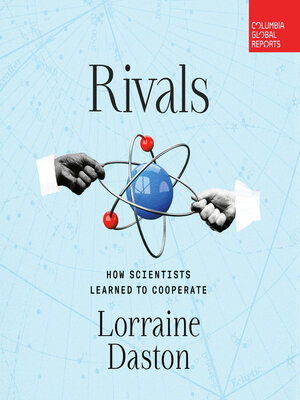
Sign up to save your library
With an OverDrive account, you can save your favorite libraries for at-a-glance information about availability. Find out more about OverDrive accounts.
Find this title in Libby, the library reading app by OverDrive.



Search for a digital library with this title
Title found at these libraries:
| Loading... |
Why is “the scientific community” so unified?
In the last 350-odd years, the international “scientific community” has come to be the bastion of consensus and concerted action, especially in the face of two global crises: disastrous climate change, and a deadly pandemic. How did “the scientific community” come into existence, and why does it work?
Rivals is an attempt to answer these questions in the form of a brief historical overview, from the late seventeenth to the early twenty-first centuries, through the creation of two enormous projects—the Carte du Ciel, or the great star map, and the International Cloud Atlas, pioneered by the World Meteorological Organization after World War II. These new models of intergovernmental collaboration and global observation networks would later make the mounting evidence of planetary phenomena like climate change possible.
Drawing upon original documents stored in Paris, Geneva, and Uppsala, historian of science Lorraine Daston offers a fascinating, lively study of successful and unsuccessful scientific collaborations. Rivals is indispensable both as history and as guidance.
In the last 350-odd years, the international “scientific community” has come to be the bastion of consensus and concerted action, especially in the face of two global crises: disastrous climate change, and a deadly pandemic. How did “the scientific community” come into existence, and why does it work?
Rivals is an attempt to answer these questions in the form of a brief historical overview, from the late seventeenth to the early twenty-first centuries, through the creation of two enormous projects—the Carte du Ciel, or the great star map, and the International Cloud Atlas, pioneered by the World Meteorological Organization after World War II. These new models of intergovernmental collaboration and global observation networks would later make the mounting evidence of planetary phenomena like climate change possible.
Drawing upon original documents stored in Paris, Geneva, and Uppsala, historian of science Lorraine Daston offers a fascinating, lively study of successful and unsuccessful scientific collaborations. Rivals is indispensable both as history and as guidance.






